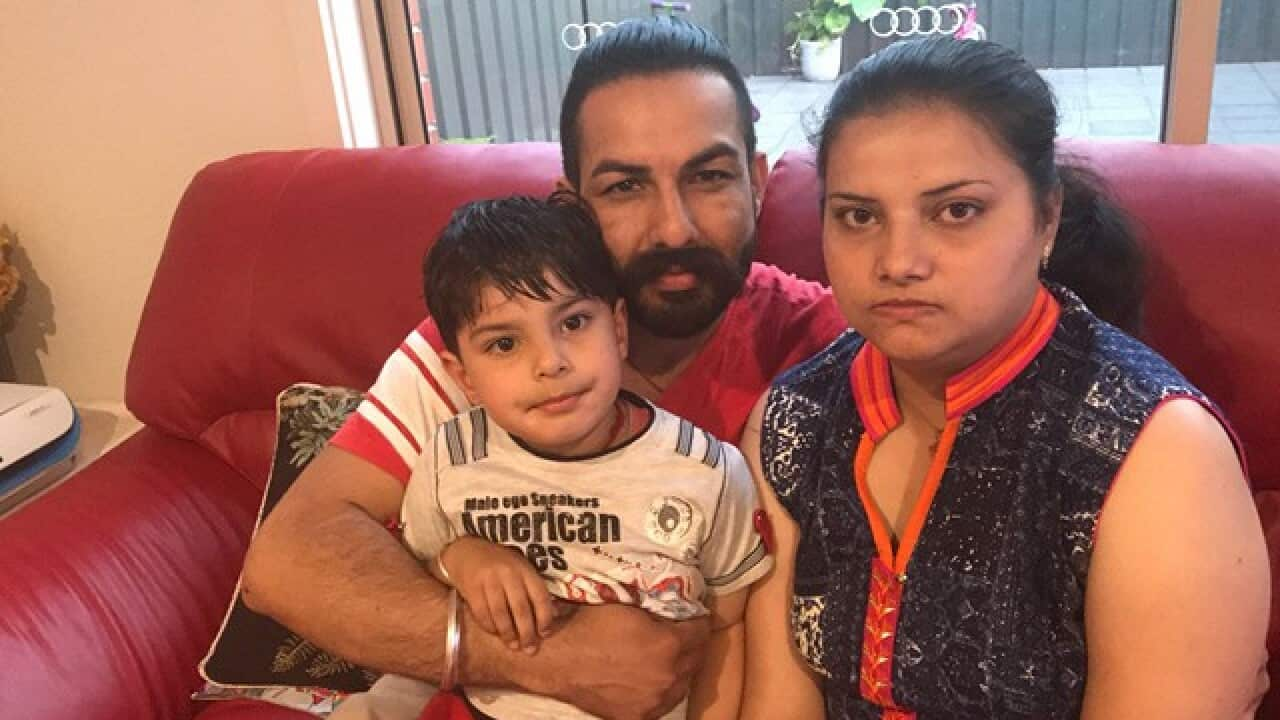A Sikh who is married to a Christian woman and was refused a spouse visa for the reason that the authorities believed the couple did not have a genuine relationship because the man did not know what church his wife belonged to has now been granted relief.
Indian national Talwinder Singh arrived in Australia in 2009 as an international student and married Kylie Ann Nilson in 2013 after meeting her at a shopping centre.
However, when Mr Singh applied for a spouse visa on the basis of his relationship with Ms Nilson, the Immigration Department refused to grant him a visa. The decision was later affirmed by the Migration Review Tribunal in 2015.
At the hearing of his appeal before the Tribunal, Mr Singh gave evidence that he had not bothered to ask his wife to what church she belonged. The Tribunal held that his lack of interest in his wife’s church indicated his lack of support for her and concluded that it wasn’t satisfied that the relationship between Mr Singh and Ms Nilson was genuine.
The Tribunal also found that Mr Singh failed to explore the possibility of changing his work schedule to fulfil the couple’s shared plans to have a child together and that he also did not discuss with his wife the possibility that she might accompany him to India should his application for a review of the visa decision fail.
Mr Singh filed an appeal in the Federal Court of Australia against the decision. The court allowed the appeal and directed the matter back to the Tribunal for review of Immigration Department’s decision.
Mr Singh said he and his wife never felt the need to discuss one another’s religion.
“Do people who do not believe in religion cannot [sic] be in a relationship or people who don’t discuss about religion are all ungeniunely [sic] married. It seems to me that Tribunal member follows a particular faith and is upset about me not knowing more about church,” Mr Singh told the court.
The Tribunal cannot just look at what support is provided, or what sort of support the Tribunal would expect according to its own assumptions about a marriage relationship. The legal criterion focusses on the support the partners draw from each other, and so the Tribunal needs to look not only at the kind of support that is provided what support the other partner draws.-Stephen McDonald
Barrister Stephan McDonald represented Mr Singh at the appeal after the court referred him for legal aid.
He says the Tribunal erred in applying the law to Mr Singh’s case and that the kind of support provided by one partner in respect of the other partner’s religion is potentially relevant but will not be significant in all cases.
“The Tribunal cannot just look at what support is provided, or what sort of support the Tribunal would expect according to its own assumptions about a marriage relationship. The legal criterion focusses on the support the partners draw from each other, and so the Tribunal needs to look not only at the kind of support that is provided what support the other partner draws,” Mr McDonald told SBS Punjabi.
He said the case would create a precedent for the proper interpretation of the particular criterion in the migration regulations.
Mitchell Simmons said Talwinder was representing himself initially and was able to set out why he thought the decision was incorrect before his case was referred for pro bono assistance.
“The Court considered that legal assistance was necessary in order to be able to properly argue why the decision was affected by the jurisdictional error. If applicants are not assisted by lawyers, they will often find it difficult or impossible to distinguish between arguments based on legal errors and arguments that the decision is simply ‘wrong’ or that the Tribunal should have made a different decision,” said Mr Simmonds.




